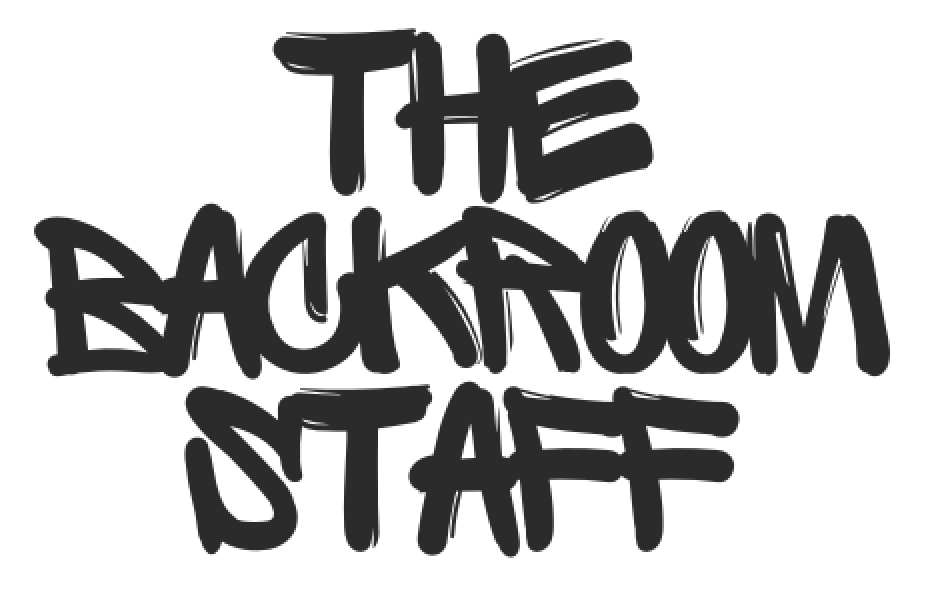It’s no secret that football is becoming more and more physical, players cover more distance, sprint more and play more games than their predecessors. At the highest levels, having the energy for that final sprint can make all the difference between winning and losing.
Nutrition has evolved too. We’re long past the days when banning Mars bars or ketchup passed for innovation. Now, many top clubs employ nutritionists to help players optimize performance and avoid injury. Still, especially outside the elite levels, there’s still plenty of untapped potential to support players.
Anže Počkaj, a former professional goalkeeper, was early to this trend. What began as simple advice for teammates about eating healthy has turned into AP Football Nutrition, a fully fledged nutrition company with clients across all levels of football.
In this interview, Anže shares how he got interested in nutrition, why common supplements and nutrition advice isn’t always right for footballers and the behind the scenes of creating his own supplement brand.
The interview has been condensed and lightly edited for grammar and clarity.
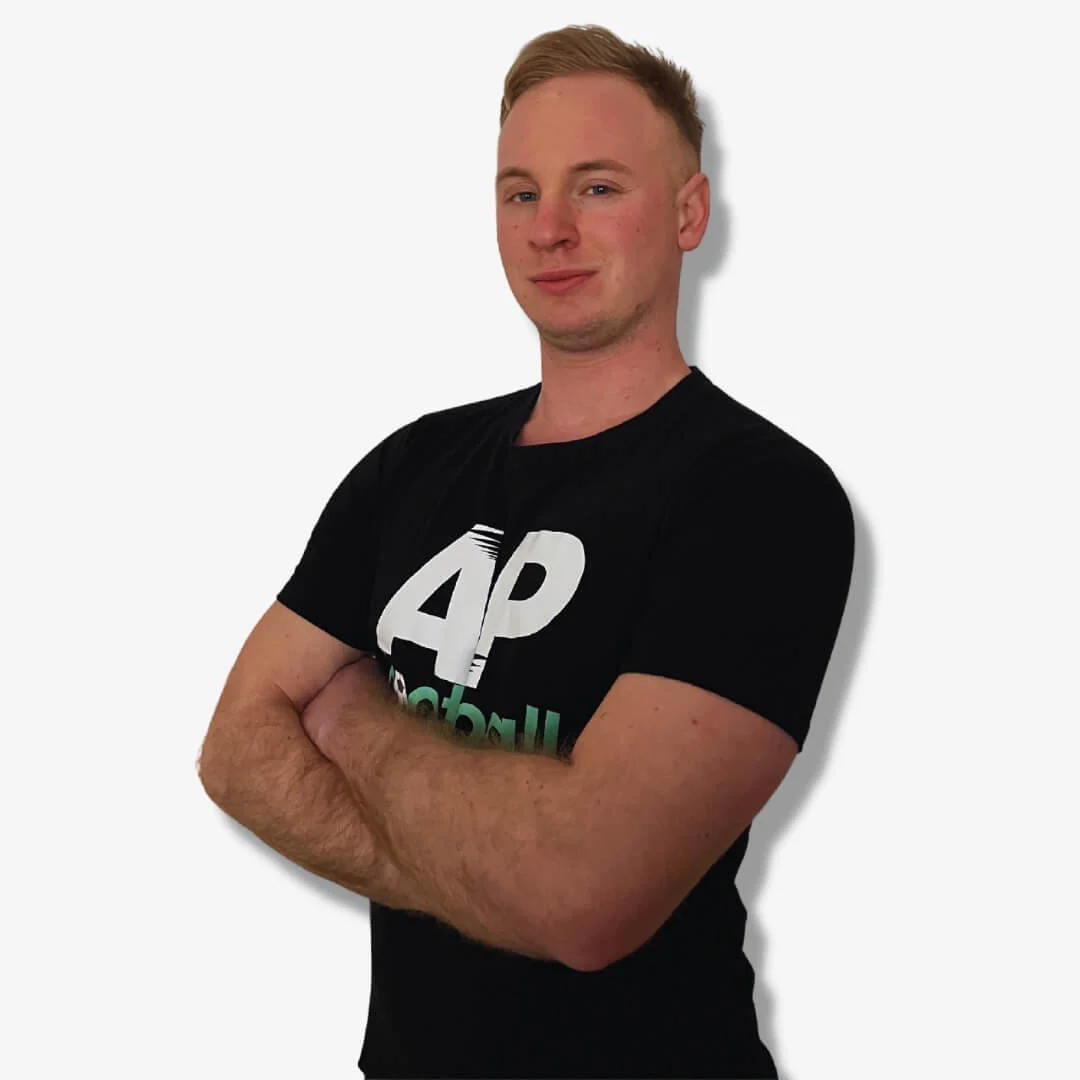
[ Background and playing career ]
I come from a footballing family, my father is a coach and he got me into football when I was a young kid. I remember watching the 2002 World Cup and 2006 World Cup, that’s where it all started for me!
Although I started as a player, I quickly transitioned into goalkeeping. I started training locally in Slovenia. I'm from a small town of about 5,000 people near Croatia but I quickly moved to a bigger city near Italy called Koper. There, I progressed to the top divisions for under 17 and under 19. It was a decent level and I progressed into the senior side, playing in the second division. I even got an opportunity at Tabor Sežana in the Slovenian Premier League, the top division here. Unfortunately, I had a serious injury and broke both of my wrists. This kind of ended the whole dream of becoming a serious professional player.
I was 22 at the time, so still a decent age for a goalkeeper. After the injuries and surgeries, I started training again. I still enjoy it and I’m still a goalkeeper in my local team in the 3rd division - even though now, I mostly just train - but I’m on the bench if the team needs me!
[ Were you always really healthy? What sparked your interest in nutrition? ]
There were a few factors. I would say, when I was younger, I was neither fat or out of shape but I was also not skinny or muscular. I was something in between. I wasn’t the tallest for a goalkeeper either, so I knew I had to do something to bridge that gap.
I saw good nutrition, good recovery and things like that pretty early as an opportunity to get ahead. I saw great results on myself and other players started to see my improvement each season to the point where my teammates wanted to know what I was doing! I encouraged them to eat healthy and be mindful of their pre-game and pre-training snacks, post-game recovery and their nutrition generally. They were pretty interested, I wasn’t thinking about it in a business sense then but I saw an opportunity. I wanted to help people play better.
"I saw good nutrition, good recovery and things like that pretty early as an opportunity to get ahead"
[ When did you start to see nutrition as a possible career? ]
I always wanted to work in football. During my high school and college years, I studied nutrition in sports - I even went to America where I was coached by a specialist in MMA and boxing nutrition, George Lockhart, who’s coached Conor McGregor and Tyson Fury for example. I got a taste of what the ‘top’ looks like when it comes to nutrition and quickly realized that we don’t have that specific knowledge in football.
Maybe the top teams in the Premier League or in Germany, Spain or Italy but in Slovenia, we don’t have anything like that. I wanted to help players who weren’t at the top level yet, players who might be having some trouble with their conditioning but have the potential to move to a higher level with training and support.
I was studying nutrition and management in parallel because I knew I wanted to make a nutrition company. My first idea was around meal planning and things like that. At that time, Instagram was becoming very popular and I started to post some videos. Even without a big following - I presume it’s quite niche to be honest - I quickly got a few clients.
I started working with some players locally and it started to grow. I started working with international clients and with a big coaching organization in Britain called Matchfit Football - now we run their nutrition department. We have players internationally, mostly young players, at clubs like Wrexham and in MLS or the Saudi league as well.
[ How did you grow from local players to more established pros? ]
At the start, most of the players were local, including guys I knew from my own team. After I started posting a few things, some of my former teammates or players I used to play against started to reach out to me. Eventually, people I didn’t have any connection to started reaching out too.
I built some templates for meal planning and personalized them around a player’s training schedule. At most teams, you get a training schedule for the week on Sunday or Monday and then they simply send the schedule to me, and I build a meal plan based on their schedule.
After a couple years, we started working with, let’s say, more serious players. I worked with Paul Pogba’s brother Mathias when he was playing in Slovenia. He had, I don’t know maybe half a million followers back then so it kind of exploded. My client base grew and became more professional, I was working with players in Serie A and international players who had been at top clubs.
Then, we started our own supplement line and a lot of players liked the product. And you know how it is in football, if somebody has something new and exciting in the locker room, others kind of want it too!
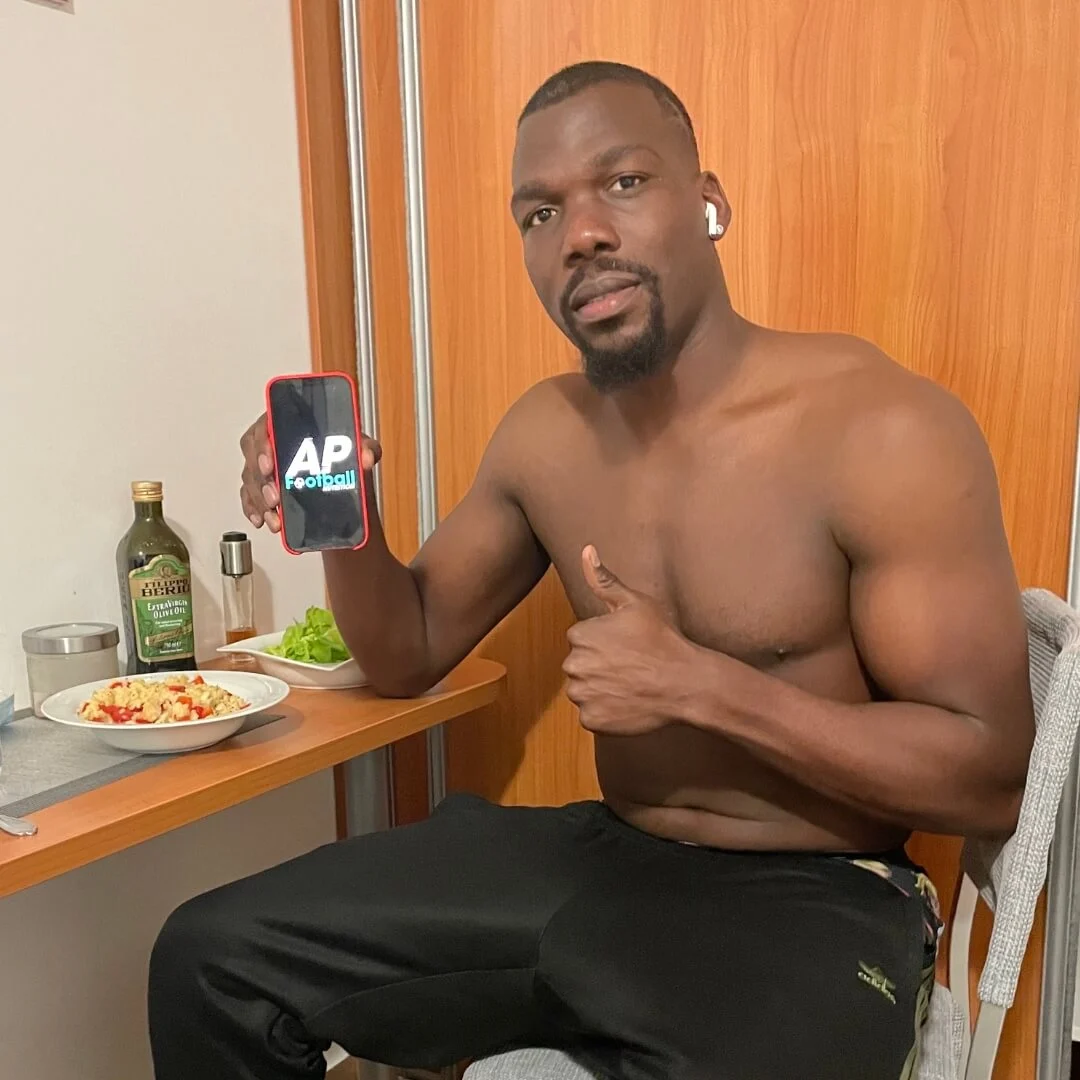
"in football, if somebody has something new and exciting in the locker room, others kind of want it too!"
[ What is the process when a player comes to you - do they have specific goals? What information do you need to support them in the best way? ]
First, we start with a few questionnaires that cover their current eating habits, preferences, allergies and medical conditions but also their sleep schedule, and basic information like age, height, weight and the level they are playing at.
Then, we look at their training schedule. For example, if they have one match in the week, let’s say on Saturday, we know that probably their training on Monday, Tuesday and Wednesday will likely be a higher intensity than the Friday. We personalize everything to the player. If we know they like to go out after a match, we take this into account and know there will be some fluctuations in their eating and sleeping habits which is completely normal.
[ After this initial review, how often are you checking in with a player? How long does a player typically use your coaching? ]
It depends, and we offer different packages. We like to have at least a month with them to measure the success of the meal plan we’ve created for them and adjust things from there. Sometimes after a month, many players are satisfied, they get the idea of what they should be eating and are happy to go on their own.
Then we have players, often footballers at a higher level, who have a longer support period over several months. We’re always in touch on WhatsApp or any other chat getting feedback or making updates when their schedule changes and anything else depending on what the player wants and their resources, like if they have a nutritionist at the club they’re at and things like that.
[ Besides just generally being healthier, what are some common goals or issues players come to you for help on? ]
Allergies are a common one. For example, if someone is gluten intolerant, it can be hard to eat enough carbohydrates, especially if they are playing at a really high level. They often need a more specialized plan.
Another common issue is players who struggle with consistent injuries - usually muscle injuries. This is often due to poor nutrition and/or recovery post-training or post-match. This is becoming a bigger problem in the modern game because there are more and more matches.
Hydration is also a big topic we work on. Most footballers aren't drinking enough! When you see players cramping in the last 30 minutes of a match, it’s often due to dehydration.
These examples probably cover about 90% of the players we work with.
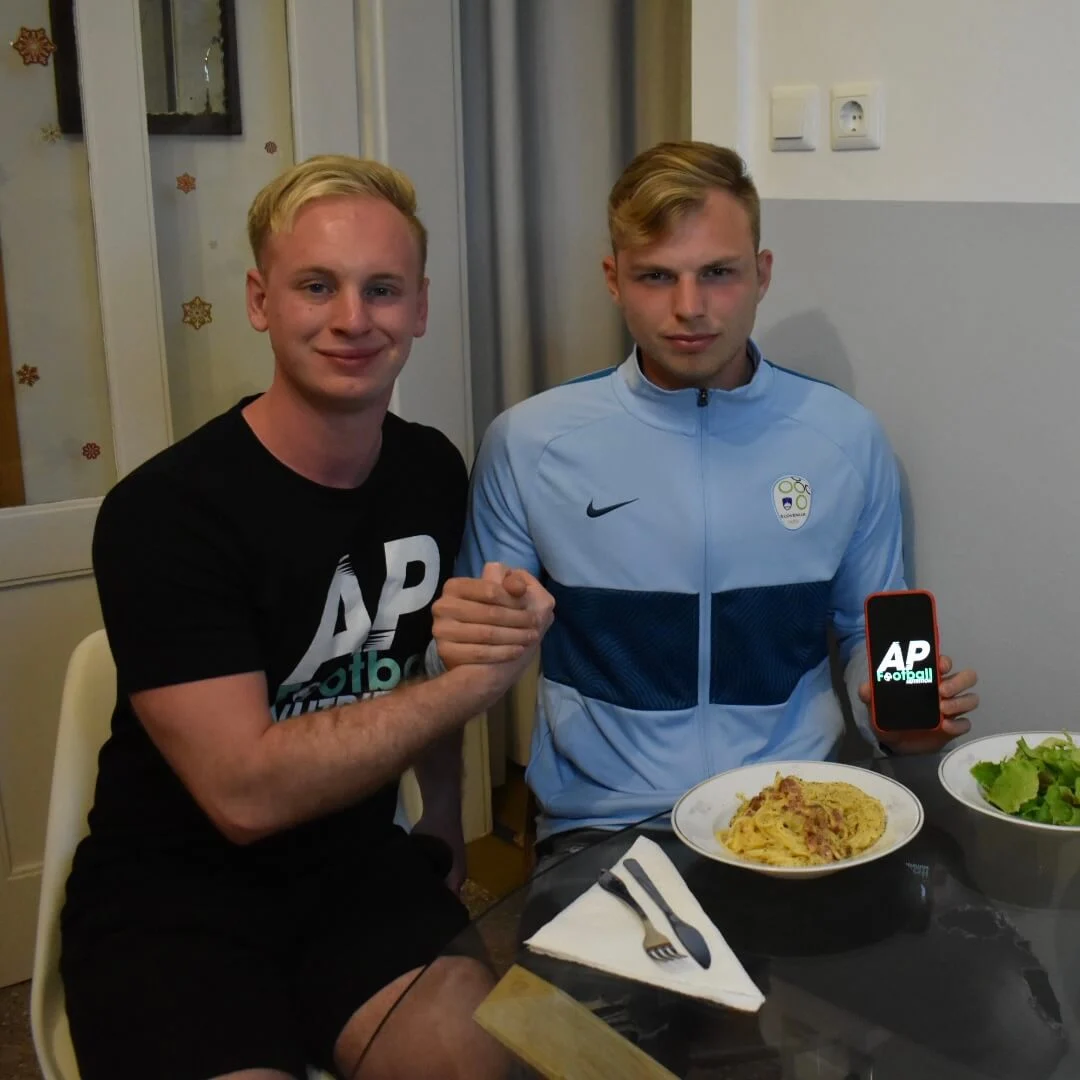
[ Are most of your clients older or more experienced players looking to extend their careers or stay at their current level? ]
Actually, it’s mostly young players - some of them are even kids! In that case, we work with the parents of course. At younger ages, it’s not even what I’d call meal planning, it’s more setting the foundation for a healthy lifestyle that will help them have a healthy and sustainable career.
As they get older, we can get more specific. The bulk of our clients are between about 15-25 and there we can get more detailed and specific and introduce things like supplementation depending on their level and age. For elite youth players who are playing at an almost professional level, or someone like Lamine Yamal, their demands are of course much different to someone playing in the under 17s or 19s league in their country.
[ You mentioned creating Goal Booster, your own supplement, can you share how you created it and how you manufacture it now? ]
First of all, when I started working, I didn’t know of any brand specifically for football supplements. Lots of supplements are just for the whole ‘fitness industry’. As these brands started to grow, lots of them were great for bodybuilders and people like that. Those supplements were intended for people in the gym - that’s why you saw a lot of promotion of things like protein powder for example.
But protein powder isn't the best supplement for football players, because it's a highly intensive sport with lots of running and sprints - it’s not really similar in any way to lifting weights on a bench. Still, a lot of players started eating a lot less calories, drinking a lot more protein powder and eating chicken and things like that. They were thinking that they were doing everything correctly, but they weren't playing any better. There was a big disconnect because the players wanted to get better but didn’t have any knowledge about how and which supplements to use.
I started to see an emergence of a few nutrition brands focused on football supplements like Soccer Supplement and Football Supplements in Britain and Magic Nutrition in Germany. Those were the 3 biggest that emerged just before COVID. Those are all great companies but Soccer Supplement, while it’s big in Britain, shipping to Europe costs like €20. At the time, Magic Nutrition was shipping only to Germany and Austria. So there wasn’t anything in Slovenia or Croatia and countries a bit further from Central Europe. I wanted to change that.
The idea was to create a product that would be specific for footballers, and that we could present in an easy to understand way, why is it good for footballers.
Goal booster is, in some ways, similar to pre-workouts that are already on the market. We wanted to give something that you can feel instantly when you start training, so there is caffeine.
It also has beta-alanine which helps with stamina and blood circulation. Then we added creatine which improves muscle mass and endurance. Creatine is one of the most researched supplements in the world and has been recommended for players, so we wanted to include that.
It’s created in the European Union with the highest quality standards. That was a big deal for us. In the research phase, we contacted a lot of pharmaceutical factories and had a lot of meetings. Initially, we wanted someone who could provide samples so that we could try in practice, with actual footballers. We found a company that was willing to do that and afterwards modified the formula even further. Next, we got the GNP and HACCP certificates so we know that everything is clean and as it should be - and there are no banned ingredients!
We also spent a lot of time and effort on our product design. We wanted to make something that would stand out in a mix of 100 different pre-workouts as one that is for footballers. It also had to be small enough to fit in a bag for a footballer - not like a protein powder that comes in however many kilos!
So, we really went through everything thoroughly before we started with the manufacturing. We started selling Goal Booster last summer, and we already have players and teams that have ordered their 5th, 6th or 7th of the season.
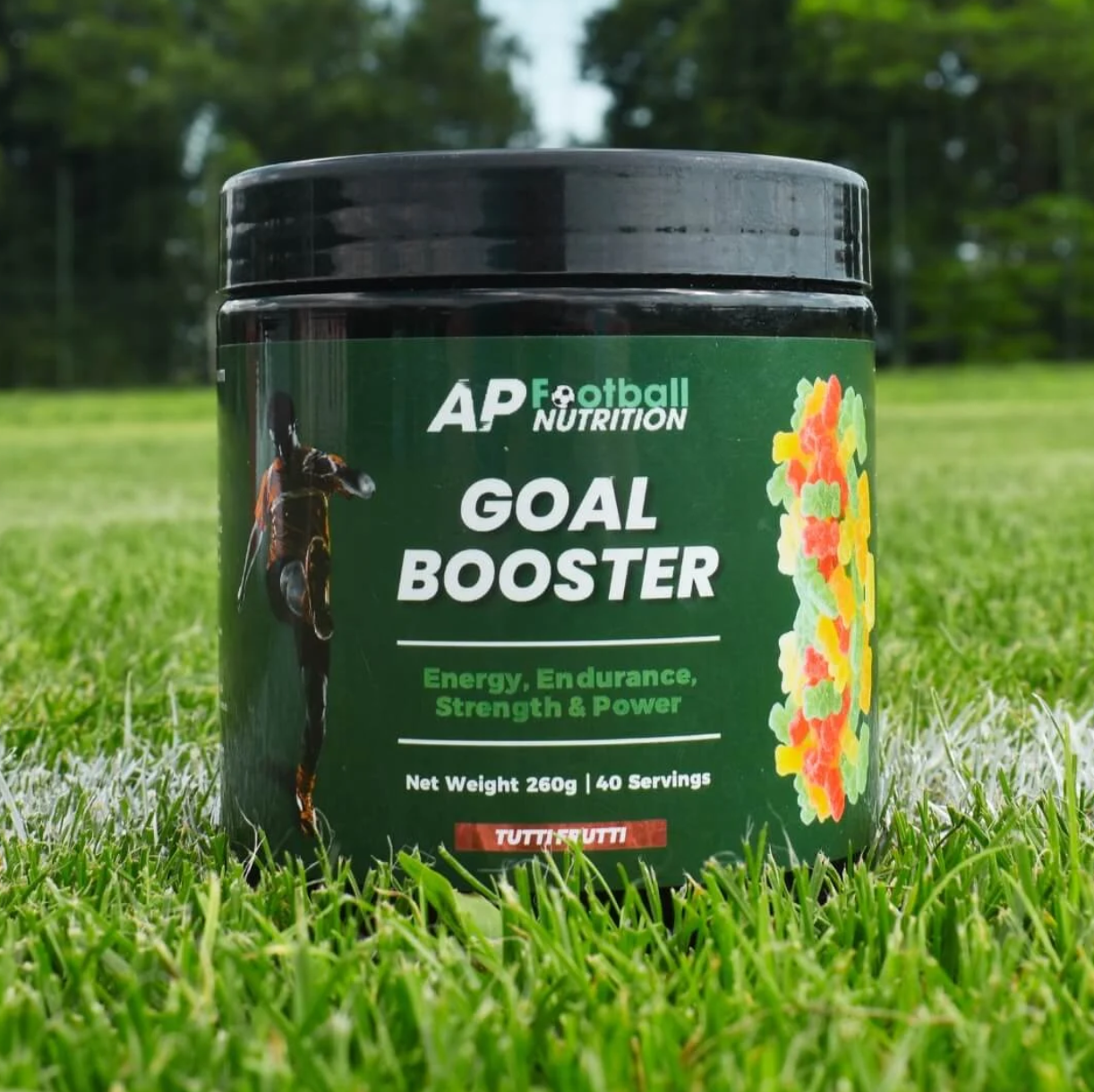
"The idea was to create a product that would be specific for footballers that we could present in an easy to understand way"
[ Do you have plans or ideas for more supplements or products? ]
Yes, of course. Goal Booster is a pre-match and pre-training supplement but we also want to produce something for during the game. That would probably be something like an Isotonic SiS - like a Powerade or Gatorade but more specific to footballers' needs.
We’d also like to do a product for recovery post-match or training. Something more protein powder-ish with added carbohydrates and salt to kick start the recovery process. We’re looking into plant-based protein for this because it digests quickly, gets into the bloodstream quicker and isn’t an issue for lactose intolerant players.
And generally, we are mainly selling in Slovenia and Croatia now, but we want to expand throughout Europe and then America. Football is growing a lot around the world and I believe if we can catch this train early, we can grow into a proper company that you could see at half-time on your TV!
[ Do you wish to work in a club as a nutritionist one day? ]
In the past, I was working in a Premier League club here in Slovenia. I enjoyed it and I liked working with players day to day, but I kind of found out that I can help a lot more players if I have my own company.
What happens in a club is you have a squad of up to 40 players and maybe 5 of those players are really into it. Maybe 10 or 15 are kind of interested and the rest don’t care at all. So, I really enjoyed working with those 5 players but I mostly came to the conclusion that players like that will find us anyway. If we work online, we can help hundreds or thousands of players, compared to 5 in a club.
